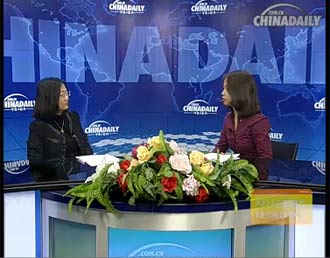Nano satellite helps students train for space science
Updated: 2013-12-16 15:55In South Africa,young engineers are being encouraged to push the boundaries of space science through nano satellite technology. It's a cost effective way for students to get a feeling of working with technology in an actual space environment.
At a Cape Town university students have built Africa's first nano satellite,which will be used to monitor the effect of the sun in space. It will also be used as a platform, for students from other universities across the continent to train for a future in the space industry.
First it was the successful Square kilometer array bid,the largest radio telescope to built in the world,then the SuperDARN radar which will monitor space weather from Antarctica, now South Africa’s next space adventure,lies with an object smaller than a football.
This is a nano satellite, it's prototype of a version that was recently launched and currently orbits the earth,its main aim is to monitor the effect of the sun in the upper atmosphere.
Building satellites undoubtedly costs billions but the cubesat is a far more affordable way of giving students to peak their interest in space.
Prof. Robert Van Zyl, Director of French S. African Institute of Technology, said, "ZACUBE is South Africa’s first cubesat, now cubesats are meant to get universities and students involved in space technology,the technology threshold and the cost threshold and the launch cost is greatly reduced with nano satellites so you can really expose a bigger number go youngsters and attract them to get real hands on experience in space technology, now that is very important for South Africa and Africa."
While ZACUBE 1 was designed and built by engineering students in Cape Town, universities from across Africa will get the opportunity to benefit from its services.
The students are being prepared for a future in the space industry, so their skill as engineers were tested when they were asked to developed the entire satellite in 18 months.
Francois Visser, Chief Engineer of ZACUBE 1, said, "From the very beginning we defined a mission that all the students could work on,many students took part they developed a lot of the subsystems that we used later on in the satellite that was actually launched,so these students developed prototypes like the radio the software,the computers,the power systems and so forth that would be used in later missions."
The success of ZACUBE 1, doesn't stop with its successful launch because a second more advanced version is already being developed and while space remains a new frontier for the continent, its new explorers are already pushing new frontiers.






















